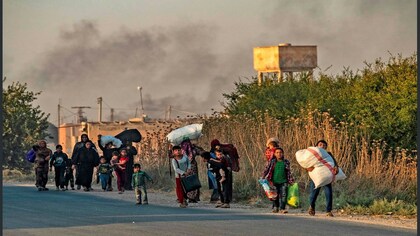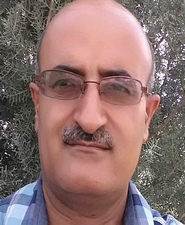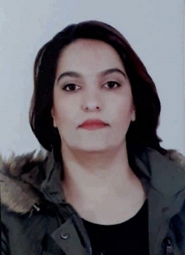Erdogan vs. The Kurds
11:36 - 20 July 2012

Aliza Marcus | July 18, 2012
The National Interest
Pity Turkish prime minister Recep Tayyip Erdogan. It seems he just can’t get the Kurdish issue right.
In early June, when Erdogan visited Diyarbakir, the unofficial capital of Turkey’s Kurdish southeast, shops closed in protest. A few weeks later, when he announced that schools would be allowed to offer elective Kurdish language classes, opposition Kurdish politicians accused him of denying their identity by refusing mother-tongue education for Kurds. Even Kurdish Islamists aren’t fans. “Turks and Kurds fought together to create the state, but somehow, we were then left behind,” said Kurdish lawyer Huseyin Yilmaz, who heads the Hezbollah-rooted Mustazaf-Der association (no relation to Hezbollah in Lebanon). “We have our own language, our own identity. We have something we want.”
Erdogan’s unpopularity among Kurds is hardly a surprise. Since his Justice and Development Party (AKP) won an unprecedented third parliamentary majority in June of last year, Erdogan appears to have abandoned the democratic-reform plans that initially gained him respect from Kurds and the backing of Turkish liberals. The prime minister’s campaign pledge to overhaul the constitution—drawn up by the 1980–1983 military junta—is moribund. Kurdish politicians in Ankara from the main political parties say any package he produces is unlikely to answer Kurdish demands that their identity and language be recognized in the constitution. And instead of changing restrictive penal-code laws used for decades to repress Kurdish identity and muzzle demands, he’s now using them to silence those who question his policies or advocate for change.
Almost four hundred officials from the Kurdish Peace and Democracy Party (BDP) party are in prison, among them thirty-six elected mayors and thirteen deputy mayors, along with six hundred-plus Kurdish civil-society activists, including human-rights workers, trade unionists and people who did no more than attend their meetings. Many have been held in prison for upwards of three years while the trials progress. Charges center on alleged membership in the Union of Communities in Kurdistan (KCK), which prosecutors say was set up by the PKK rebel force to control the Kurdish southeast. The evidence against defendants, including press conferences they called and legal briefs they wrote, is shoddy even by Turkey’s notoriously lax judicial standards.
Meanwhile, the number of journalists jailed—the majority of them Kurds—has skyrocketed to a level not seen since the 1990s, when a broad antiterror law made writing about the Kurdish insurgency a crime. And more than seven hundred university students are in prison, the highest number since the 1980 military coup, many charged with aiding the PKK rebel group through its urban KCK political wing. The evidence, again, usually rests on nonviolent acts or speeches promoting Kurdish identity or criticizing government policies, including the cost of tuition. While the space for legal Kurdish politics narrows, the PKK shows no signs of weakness; in June, rebels killed some twenty Turkish soldiers, including eight in an assault on a fortified Turkish outpost close to the border with Iraq.
Erdogan denies that he’s backed off from his reform agenda and frequently cites the changes he has made in his terms in office: he opened a twenty-four-hour state-run Kurdish television channel; allowed graduate Kurdish-language programs at university; opened the way for elective Kurdish-language classes in primary and secondary schools; and made it possible for families to speak to their imprisoned children in Kurdish. The bottleneck isn’t him, he claims, it’s the Kurds. He notes that the BDP, which won thirty-six seats in last year’s national parliamentary elections, won’t join him in condemning PKK “terrorist” attacks and won’t acknowledge the Kurdish reforms he’s done. He also accuses them of not being able to even go to the toilet unless the PKK first “loosens the strings.”
Erdogan’s not wholly wrong. The BDP won’t take his side. It’s not because they are afraid of the PKK or because they are spiteful. It’s because, from the perspective of many Kurds, the PKK’s fight is still legitimate given the judicial assault on democratic activism and the lack of a formal peace process. At the same time, Erdogan’s reforms may be new for Turks, but for Kurds, these changes are either irrelevant to main concerns or twenty years behind the demand curve. Take Kurdish-language television: a nice idea, which is why pro-PKK activists in Europe started their own satellite programming in 1995. The graduate programs in Kurdish-language studies were not poorly received, it’s just that with so many students and some professors in prison, it’s hard to know who will teach the classes—or take them. Elective Kurdish-language courses might be a good idea for Turkish students, but Kurds want their children to learn in their own language, not learn about it. And allowing families to speak Kurdish to their children on visiting day in prison is great. But letting them out of prison would be even better.
It’s not that Kurds aren’t clear what they want. It’s more like Turks don’t want to hear it. In a public statement last year, leading Kurdish political parties and organizations demanded “democratic autonomy” and a realistic plan for ending the PKK’s war and demobilizing the some eight thousand rebels whose home base is in the remote Kandil mountains of Iraqi Kurdistan. In a June interview with the liberal Turkish daily Taraf, BDP cochairman Selahattin Demirtas laid out a framework for getting to the solution: Halt the arrests of Kurdish officials and activists, and release them from prison; ease conditions for imprisoned PKK leader Abdullah Ocalan, who hasn’t had any visits, including from his lawyers, in almost a year; and create a mechanism for dialogue.
Erdogan’s Intransigence
Unfortunately, like those who ruled before him, Erdogan’s having a hard time accepting Kurdish nationalism and the popular hold the PKK exerts over Kurdish opinion. As a result, he remains wedded to the idea that if he can do away with the PKK and outspoken Kurdish activists, he can find someone who will be perfectly content with the changes he’s made to date. But that’s not a way to make peace. If he wants to end the fighting, he has to talk to those who have the guns. And if he wants a political settlement with the Kurds, he needs to negotiate with their political party. Anything short of that is just wasting time.
It’s popular to suggest that Erdogan wants a deal, but he has to move slowly because of the nationalist wing in his party and within his voting base. Yet convincing the Turkish public may not be as hard as it seems. When word leaked out about secret talks between the PKK and the head of Turkey’s national intelligence agency, MIT, last year, Erdogan’s government didn’t fall, and his ratings in the polls didn’t drop. When Erdogan announced the new Kurdish-language reform package, the most amazing thing was the lack of reaction among AKP voters. Erdogan’s strength is that he has won the support of the Turkish public—again, again and again. His weakness is that he still hasn’t decided how to use this political capital to solve Turkey’s most fundamental problem.
The Kurdish issue isn’t a matter of selling something to the voters. It’s a matter of selling it to Erdogan.
Aliza Marcus is a writer in Washington, DC, and the author of Blood and Belief: The PKK and the Kurdish Fight for Independence.
The National Interest
Pity Turkish prime minister Recep Tayyip Erdogan. It seems he just can’t get the Kurdish issue right.
In early June, when Erdogan visited Diyarbakir, the unofficial capital of Turkey’s Kurdish southeast, shops closed in protest. A few weeks later, when he announced that schools would be allowed to offer elective Kurdish language classes, opposition Kurdish politicians accused him of denying their identity by refusing mother-tongue education for Kurds. Even Kurdish Islamists aren’t fans. “Turks and Kurds fought together to create the state, but somehow, we were then left behind,” said Kurdish lawyer Huseyin Yilmaz, who heads the Hezbollah-rooted Mustazaf-Der association (no relation to Hezbollah in Lebanon). “We have our own language, our own identity. We have something we want.”
Erdogan’s unpopularity among Kurds is hardly a surprise. Since his Justice and Development Party (AKP) won an unprecedented third parliamentary majority in June of last year, Erdogan appears to have abandoned the democratic-reform plans that initially gained him respect from Kurds and the backing of Turkish liberals. The prime minister’s campaign pledge to overhaul the constitution—drawn up by the 1980–1983 military junta—is moribund. Kurdish politicians in Ankara from the main political parties say any package he produces is unlikely to answer Kurdish demands that their identity and language be recognized in the constitution. And instead of changing restrictive penal-code laws used for decades to repress Kurdish identity and muzzle demands, he’s now using them to silence those who question his policies or advocate for change.
Almost four hundred officials from the Kurdish Peace and Democracy Party (BDP) party are in prison, among them thirty-six elected mayors and thirteen deputy mayors, along with six hundred-plus Kurdish civil-society activists, including human-rights workers, trade unionists and people who did no more than attend their meetings. Many have been held in prison for upwards of three years while the trials progress. Charges center on alleged membership in the Union of Communities in Kurdistan (KCK), which prosecutors say was set up by the PKK rebel force to control the Kurdish southeast. The evidence against defendants, including press conferences they called and legal briefs they wrote, is shoddy even by Turkey’s notoriously lax judicial standards.
Meanwhile, the number of journalists jailed—the majority of them Kurds—has skyrocketed to a level not seen since the 1990s, when a broad antiterror law made writing about the Kurdish insurgency a crime. And more than seven hundred university students are in prison, the highest number since the 1980 military coup, many charged with aiding the PKK rebel group through its urban KCK political wing. The evidence, again, usually rests on nonviolent acts or speeches promoting Kurdish identity or criticizing government policies, including the cost of tuition. While the space for legal Kurdish politics narrows, the PKK shows no signs of weakness; in June, rebels killed some twenty Turkish soldiers, including eight in an assault on a fortified Turkish outpost close to the border with Iraq.
Erdogan denies that he’s backed off from his reform agenda and frequently cites the changes he has made in his terms in office: he opened a twenty-four-hour state-run Kurdish television channel; allowed graduate Kurdish-language programs at university; opened the way for elective Kurdish-language classes in primary and secondary schools; and made it possible for families to speak to their imprisoned children in Kurdish. The bottleneck isn’t him, he claims, it’s the Kurds. He notes that the BDP, which won thirty-six seats in last year’s national parliamentary elections, won’t join him in condemning PKK “terrorist” attacks and won’t acknowledge the Kurdish reforms he’s done. He also accuses them of not being able to even go to the toilet unless the PKK first “loosens the strings.”
Erdogan’s not wholly wrong. The BDP won’t take his side. It’s not because they are afraid of the PKK or because they are spiteful. It’s because, from the perspective of many Kurds, the PKK’s fight is still legitimate given the judicial assault on democratic activism and the lack of a formal peace process. At the same time, Erdogan’s reforms may be new for Turks, but for Kurds, these changes are either irrelevant to main concerns or twenty years behind the demand curve. Take Kurdish-language television: a nice idea, which is why pro-PKK activists in Europe started their own satellite programming in 1995. The graduate programs in Kurdish-language studies were not poorly received, it’s just that with so many students and some professors in prison, it’s hard to know who will teach the classes—or take them. Elective Kurdish-language courses might be a good idea for Turkish students, but Kurds want their children to learn in their own language, not learn about it. And allowing families to speak Kurdish to their children on visiting day in prison is great. But letting them out of prison would be even better.
It’s not that Kurds aren’t clear what they want. It’s more like Turks don’t want to hear it. In a public statement last year, leading Kurdish political parties and organizations demanded “democratic autonomy” and a realistic plan for ending the PKK’s war and demobilizing the some eight thousand rebels whose home base is in the remote Kandil mountains of Iraqi Kurdistan. In a June interview with the liberal Turkish daily Taraf, BDP cochairman Selahattin Demirtas laid out a framework for getting to the solution: Halt the arrests of Kurdish officials and activists, and release them from prison; ease conditions for imprisoned PKK leader Abdullah Ocalan, who hasn’t had any visits, including from his lawyers, in almost a year; and create a mechanism for dialogue.
Erdogan’s Intransigence
Unfortunately, like those who ruled before him, Erdogan’s having a hard time accepting Kurdish nationalism and the popular hold the PKK exerts over Kurdish opinion. As a result, he remains wedded to the idea that if he can do away with the PKK and outspoken Kurdish activists, he can find someone who will be perfectly content with the changes he’s made to date. But that’s not a way to make peace. If he wants to end the fighting, he has to talk to those who have the guns. And if he wants a political settlement with the Kurds, he needs to negotiate with their political party. Anything short of that is just wasting time.
It’s popular to suggest that Erdogan wants a deal, but he has to move slowly because of the nationalist wing in his party and within his voting base. Yet convincing the Turkish public may not be as hard as it seems. When word leaked out about secret talks between the PKK and the head of Turkey’s national intelligence agency, MIT, last year, Erdogan’s government didn’t fall, and his ratings in the polls didn’t drop. When Erdogan announced the new Kurdish-language reform package, the most amazing thing was the lack of reaction among AKP voters. Erdogan’s strength is that he has won the support of the Turkish public—again, again and again. His weakness is that he still hasn’t decided how to use this political capital to solve Turkey’s most fundamental problem.
The Kurdish issue isn’t a matter of selling something to the voters. It’s a matter of selling it to Erdogan.
Aliza Marcus is a writer in Washington, DC, and the author of Blood and Belief: The PKK and the Kurdish Fight for Independence.



